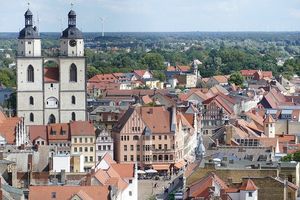We return to Martin Luther’s country, Germany. Three hundred years have passed since the great Reformer registered his protest at Wittenberg. It is 1817, and Germany is celebrating the tercentenary of the Reformation by starting the process of uniting the Lutheran and Reformed Churches within its borders.
The Lutheran Church looked back to Wittenberg and Luther. It held to the Augsburg Confession of Faith. The Reformed Church took its cue from Switzerland and Calvin. Its teaching was summarised in the Heidelberg Catechism.
In most respects there was little difference between the two. The main area of disagreement was over the understanding of the Communion Service. Since the sixteenth century these two strands of German Protestantism had developed in parallel. Now they came together.
Distorted message
One champion of the union was Friedrich Schleiermacher. He was born in 1768 in Breslau (which is now in Poland). He became a professor of theology in Berlin, but his first love was always preaching.
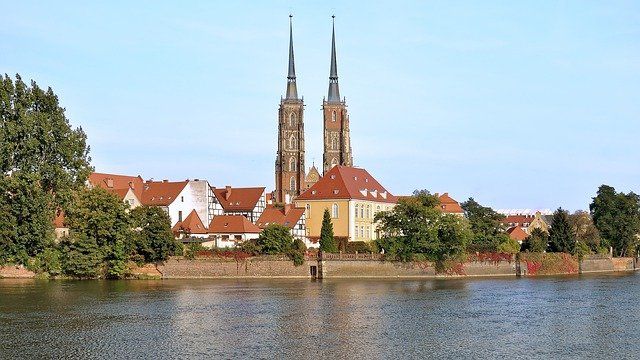
His concern was to commend the Christian faith to intellectuals who had come to despise it as primitive superstition. However, in the process of thinking through how to do this, he ended up proclaiming a distorted message.
Schleiermacher said that the essence of ‘religion’ is a deep, inner awareness of being dependent on a higher power. He believed that this was found in every human being and every community.
He saw Christianity as no different in principle from any other religion. It is just human religious awareness at its highest development. The reason why Jesus is special, he taught, is not that he was truly divine, but that he had achieved this religious awareness to the highest possible degree.
Liberal theology
These ideas are obviously far removed from biblical Christianity. They introduced a trend that would become increasingly apparent in the nineteenth and twentieth centuries; much of the church failed to hold true to the Bible. Schleiermacher, for example, described the Old Testament as ‘simply a superfluous authority’. He has been called ‘the father of liberal theology’.
One of his keenest disciples was Albrecht Ritschl (born 1822). He taught that God’s revelation comes through ‘the history of Jesus’, even though he did not believe that everything the Gospels tell us about Jesus actually happened. For Ritschl the purpose of the church was to transform the world into the kingdom of God by moral effort.
Ritschl and his followers had a very optimistic view of the future. They believed that the human race was making progress towards utopia. It was only a matter of time before ‘the brotherhood of man under the Fatherhood of God’ would be a reality everywhere.
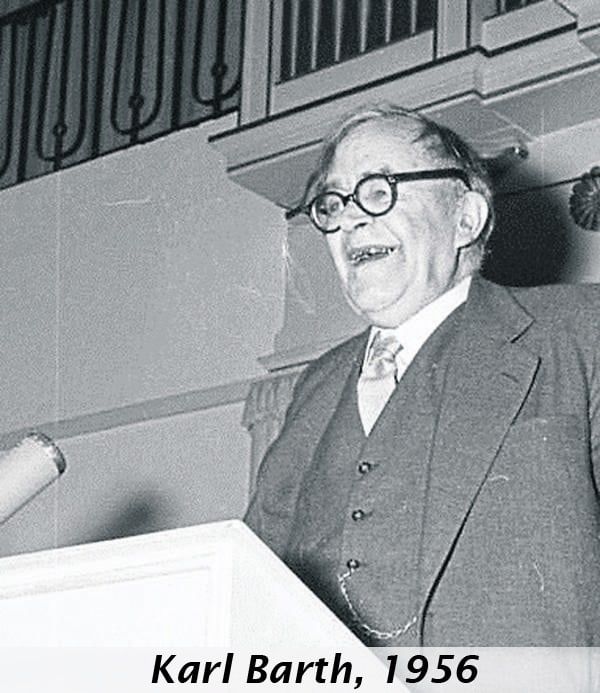
Nothing to say
All such optimism was crushed by the experience of the First World War. One man who suffered this shattering of hopes and dreams was Karl Barth. He had been trained in the mould of Ritschl, but the war showed him how false it was to claim that the world was progressing towards the kingdom of God.
Barth was Swiss. He was born in 1886 in Basle and, in 1911, became pastor of the church at Safenwil, a village in central Switzerland.
In 1914, with the outbreak of war, he found himself at a loss to know what to preach to his people. The so-called ‘Christian’ world was tearing itself apart and he came to realise that liberal theology had absolutely nothing to say.
He was driven back to study the Bible all over again. He discovered two things. First, the Bible is not just about human religious awareness, as Schleiermacher had taught. Second, the Bible is not just a call to religious moral effort, as Ritschl had claimed.
Barth discovered that the Bible is all about God in his own absolute ‘Godness’. He realised that it is blasphemy to think that man can do anything to ‘bring in the kingdom of God’. Rather, everything about human life stands under the ‘No’ of God’s judgement.
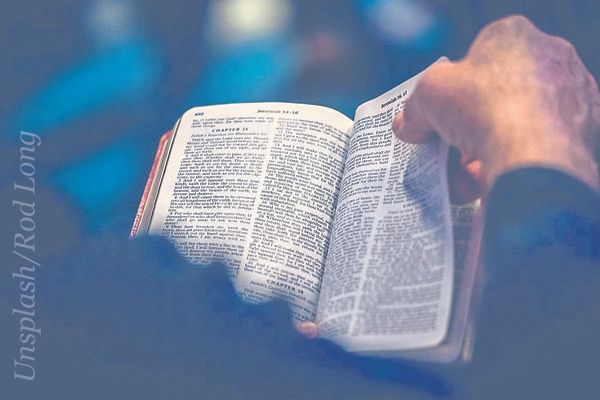
From his reading of Scripture, Barth found that humanity is utterly and completely unable to know God at all, unless God steps across the infinite gulf which separates us from him, and calls us in his Word.
Nazi ideology
This sounded very promising. It was good to hear such an emphasis placed upon God’s Word. And, indeed, it was refreshing after the decades of liberalism that sought to undermine the Scriptures.
Sadly, however, Barth did not go far enough. He did not reaffirm the truth that the Bible is the Word of God. He described the Bible as a ‘witness’ to God’s word. He said that the Bible may become God’s word today when God chooses to communicate himself through it in a revelation ‘event’.
In 1921 Barth left his pastorate and his homeland to become a professor of theology in Germany. After lecturing in Göttingen and then in Munster, he moved in 1930 to the University of Bonn.
In January 1933 Hitler came to power in Germany. Much of the German church embraced the Nazi ideology. Jewish Christians were thrown out of the churches and the Old Testament and the epistles of Paul were rejected as being too ‘Jewish’.
The church was reorganised. Its 28 provincial bishops were replaced by a single Reich-bishop, in line with the government policy of national centralisation. The man appointed Reich-bishop was a Nazi called Ludwig Müller.
However, some Christians were alarmed. In September 1933 Pastor Martin Niemöller formed the Pastors’ Emergency League. Karl Barth became a member. Its first act was to issue a protest against government policy and against the churches’ compliance with the Nazis.
Persecution
The following year the League drew up the Barmen Declaration. It was largely written by Barth. It called the church back to ‘the one and only word of God given in Jesus Christ and witnessed to in the Scriptures’.
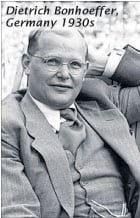
Before long 7000 Christians had allied themselves with the League. Alternative church structures were set up. They became known as the ‘Confessing Church’.
It soon became the target of Nazi persecution. In 1935 Barth was expelled from Germany. He returned to his native Switzerland and taught theology at Basle until he retired in 1962. In 1936 Martin Niemöller was imprisoned. In 1945 another leader in the Confessing Church, Dietrich Bonhöffer, was executed.
World Council of Churches
In 1948, three years after the defeat of the Nazi regime and the end of World War Two, the World Council of Churches (WCC) was founded at Amsterdam. Karl Barth was one of the speakers at the inaugural assembly. Plans for such a Council were afoot in the 1930s, but the onset of war had delayed things.
Thirteen years later (in 1961) the WCC held a conference in New Delhi in India. Here it defined itself as ‘a fellowship of Churches which confess the Lord Jesus Christ as God and Saviour according to the Scriptures and therefore seek to fulfil their common calling to the glory of the one God, Father, Son, and Holy Spirit’.
On first reading that sounds good. The problem is that it is vague. In practice, almost anything goes under this ecumenical umbrella. There is little wrong in the statement itself, but it excludes nothing.
It is not full enough to say how the Scriptures function; a Barthian view of the Bible is compatible with this statement. It fails to clarify in what sense Jesus is ‘God and Saviour’; Schleiermacher’s explanation of how Jesus is ‘special’ would not be ruled out. It says too little to define the ‘common calling’ of the Churches; Ritschl’s teaching would qualify.
The WCC makes no clear commitment to the Bible being itself the infallible Word of God. There is no explicit declaration that the gospel is centred in the doctrine of justification by faith alone.
Churches together
These shortcomings became all the more evident with the launching of the ‘Churches Together’ movement at Swanwick in 1987. For the first time, the Roman Catholic Church became a full participant in the ecumenical movement in Britain. For these reasons, most Evangelicals have felt that to be involved in these ecumenical structures would mean inevitable compromise. They feel obliged to remain outside.
To some extent, however, that has changed with the rise of the Charismatic movement. While calling themselves ‘Evangelicals’, many Charismatics have drifted into ecumenism. They have sought unity on the basis of mystical experience rather than on the basis of gospel truth.
The emphasis on the Spirit has often resulted in the downgrading of the Word and the centrality of Christ. It is too early yet to say which way the Charismatic movement will go. It could revert to a genuinely Evangelical position, putting the Word and the gospel at the centre. Alternatively, it may wander away into heresy, because what is imagined to be the work of the Spirit becomes completely separated from the teaching of Scripture.
As the church enters the third millennium we are still called to ‘contend earnestly for the faith which was once for all delivered to the saints’ (Jude 3). The contemporary battleground is clear. The issues on which we must stand steadfast and immovable are the Bible as the infallible Word of God, and the gospel as justification through faith in Christ alone.

